Twelve Reasons you Shouldn’t Invest in a Normal Inverter
Columbia Industrial Products offers multiple textile, lubrication and resin combinations to provide the most suitable material for your application. Below are the most common CIP Composite material grades. Our dedicated team will help you choose which CIP material will best fit your specific application, taking into consideration the type of environment (wet/dry, dirty/caustic), amount of load, speed of moving parts, and temperature among other factors.
CIP HYDRO
Specifically designed for Hydro Power environments
Tested by PowerTech Labs and approved by the US Army Corps of Engineers
Replaces bronze, polyurethanes, nylon, oil lubricated babbitt and wood
CIP MARINE
Specifically developed for marine environments
ABS and RINA approvals for rudder and stern tube bearings
Replaces bronze, polyurethanes, nylon, oil lubricated babbitt and wood
TEROTUF
Knife and gun grip material
Available in 12 colors
Weather tested by Ochs Sherworx
100 SERIES MATERIALS
CIP 100 series materials offer the widest range of lubricant options and support most applications.
CIP101
No lubrication
Designed for static applications
Commonly used as an electrical insulator
Low cost
CIP111A
Ideal for indoor applications
Low maintenance
Cost effective
CIP121A
Good load capacity
Good wear performance
Commonly used as wear pads, thrust washers and bushings
CIP131A
Stable in hydraulic fluids
Chemically resistant
#1 CIP material for hydraulic wear rings. Also commonly used in food processing equipment requiring harsh chemical wash downs.
CIP151A
Improved chemical resistance
Operating temperatures up to 400°F
Cost effective
CIP153A
Operating temperatures up to 400°F
Chemically resistant
CIP133A
Improved chemical resistance
Operating temperatures up to 400F
CIP152A
Excellent stability and strength
Works well in saltwater environments
Special blend originally designed for the oil and gas industry.
200 SERIES MATERIALS
CIP 200 series material provide the best tribological performance.
CIP251A
Ideal in high loads
Slow oscillating applications
Linear slide motion applications
CIP252A
Wet environments when sand and silt are present
Common applications include underwater salvage, remotely operated vehicles (ROV) and dredging equipment
300 SERIES MATERIALS
CIP 300 series material provide the best environmental performance.
CIP333A
Best chemical resistance
Operating temperatures up to 400°F
Commonly used in paving equipment, ejection molding and high temperature pumps.
CIP353A
Best chemical resistance
Operating temperatures up to 400°F
Common applications include down hole drilling, high temperature mining, and robotics.
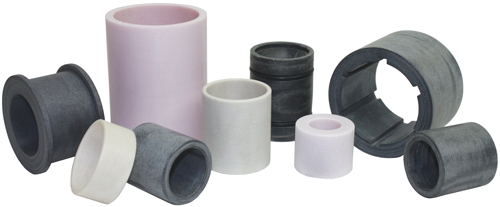
CIP Composite are laminated polymer materials made by impregnating textiles with thermoset resins. Solid lubricants are added to the resin to provide evenly dispersed lubrication throughout the material, inherently eliminating the need for external lubrication. CIP offers customers an array of different textile, lubricant and resin combinations. We determine the best
combination based on application criteria and environment.
There are many benefits to CIP Composite materials. Those listed below are the most common benefits that are applicable in most applications, for a complete list visit our benefits page or visit our industry pages.
Self-lubricating
Solid lubricants are dispersed evenly throughout the material, eliminating the need for external lubrication. Offering a variety of advanced lubricants, additives and material combinations CIP can provide a product solution for a wide scope of application demands.
Replaces Bronze
CIP Composites are ideal for replacing traditional bronze and plugged bronze bearings. Metallic bearings require a consistent film of external lubrication for operation. CIP Composites can reduce or eliminate external lubrication systems with its self lubricating properties. Graphite plugged bronze bushings rely on full rotational movement to create an even lubrication layer. In slow oscillating applications, the lubrication layer may be uneven or non-existent and high friction or stick-slip can become a concern. CIP`s even distribution of lubrication additives allow for low dynamic and static coefficients of friction, eliminating stick-slip and noise.
100% Bearing Material
Cip Composite Material are lubricated completely throughout the bearing and have no fiberglass or metallic shell. The ability to make a material that has no abrasive fillers or reinforcements allows CIP to provide a product that will not damage the shaft material, and risk equipment failure due to abrasive contact surfaces.
High Load / Slow Rotating Capacity
Ideal for high load, slow speed applications.
Composite Material are Made in the USA
Manufactured in Eugene, Oregon, centrally located for timely air and/or sea shipments. CIP uses domestically sourced materials for the production of its composite materials.
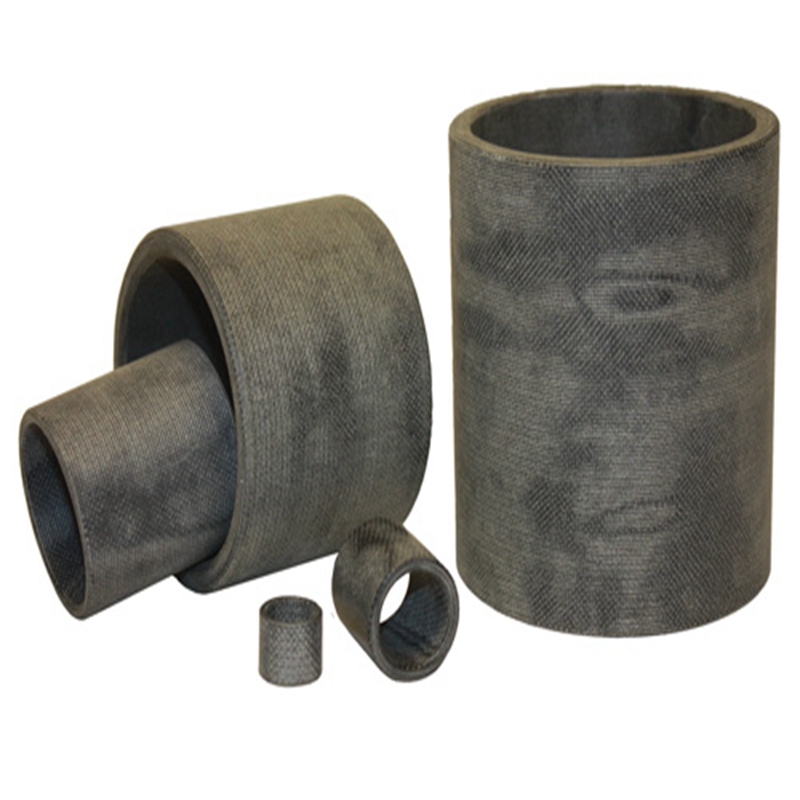
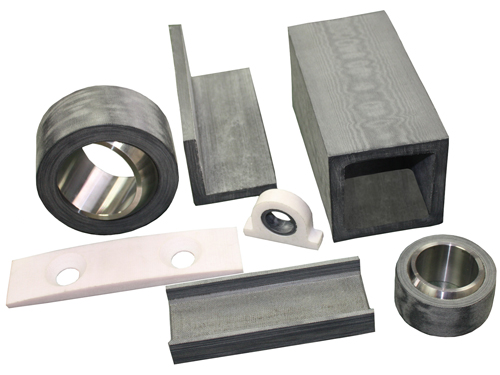
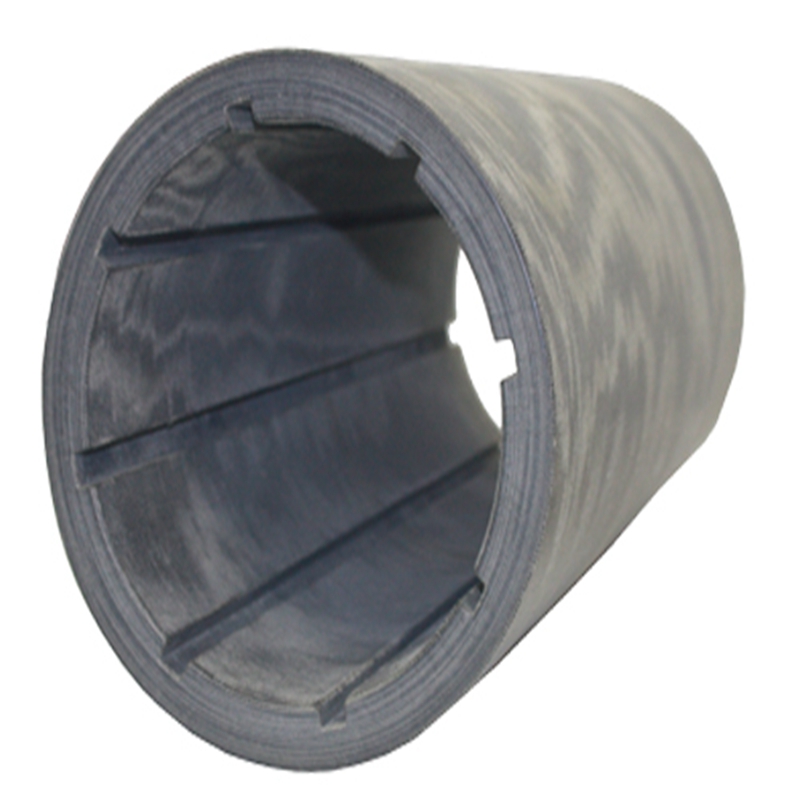
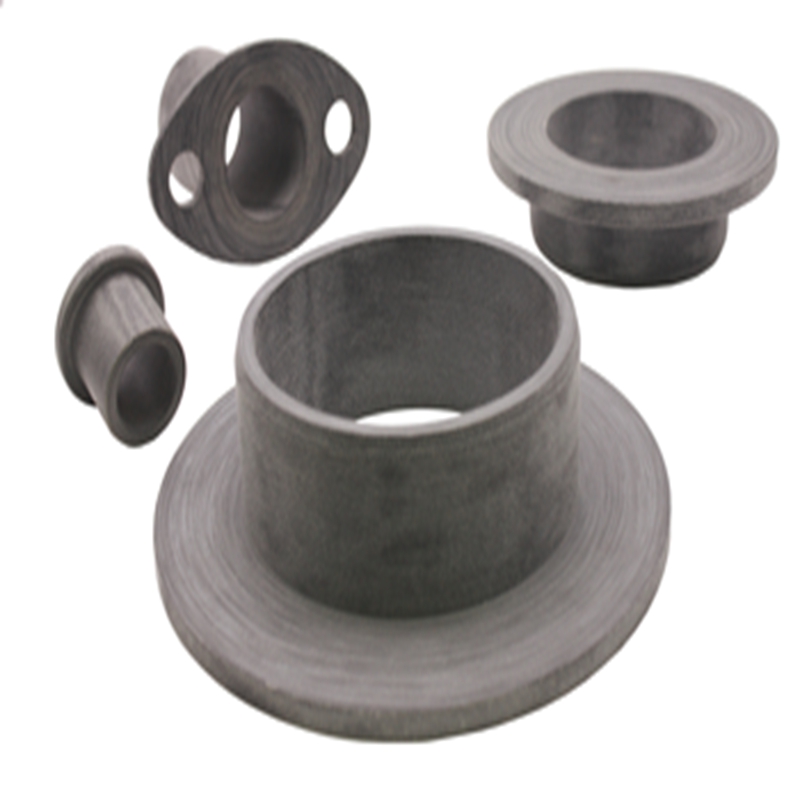
Cip Composite,CIP Composite Material,Cip Composite sheet rod,CIP Composite Material Sheet Tube,CIP COMPOSITE MATERIAL Plastic Sheet
Hony Engineering Plastics Limited , https://www.honyplastic.com